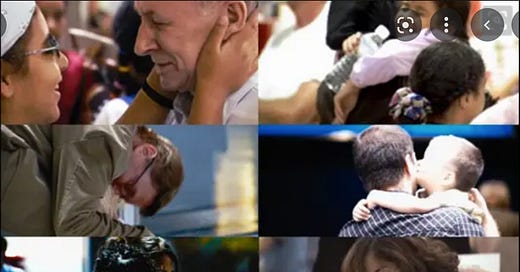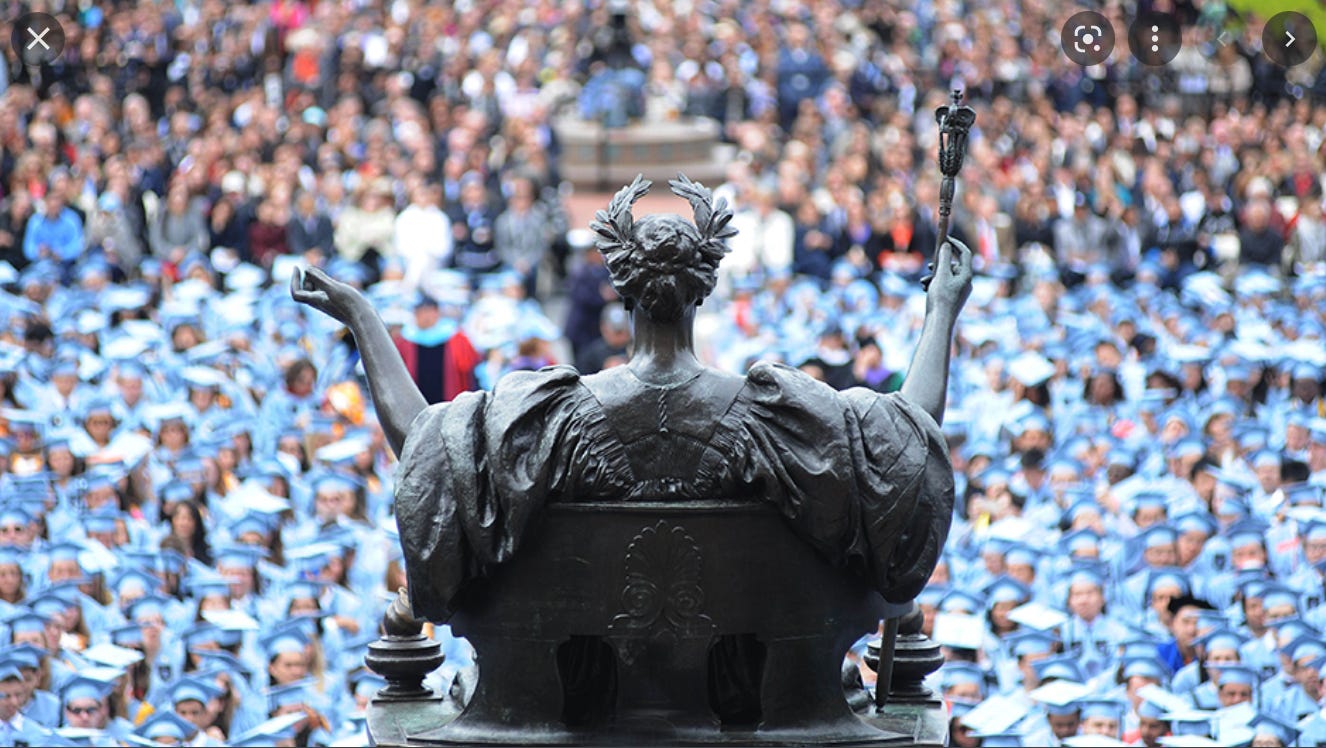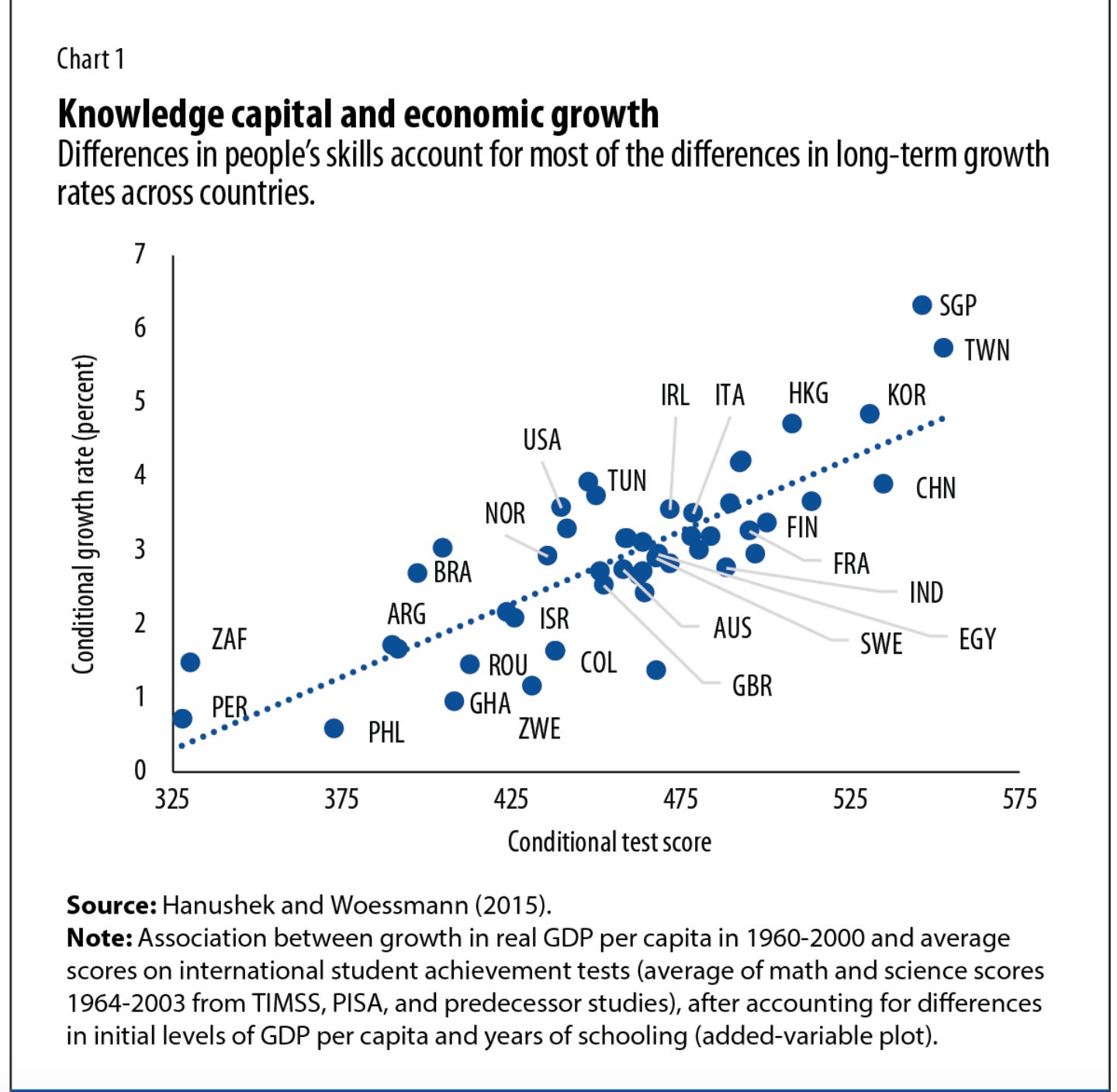Chartbook #129 Love Actually, the Columbia MA Commencement 2022 and the global future.
While sorting through a pile of clothes preparing for a summer trip, I came across the folded text of the Columbia MA Commencement speech that I had the privilege of giving this year.
It brought back to me some of the emotions of May 2022. It was good to reread it.
“Well, hello, graduating cohort of 2022. First things first. Congratulations on this wonderful occasion.
You are taking a graduate degree from Columbia university. That is a huge deal. Let me say that again. That is a huge achievement.
It has taken a lot to get you here.
You and everyone who has supported you deserve huge congratulations. Families. Teachers take a bow!
It’s a beautiful occasion. YOU are all looking great. As my daughter tells me, Columbias’s light blue just looks great with everything.
I, on the other hand, have to borrow my regalia on occasions like this. When I was at your stage, when I was your age, I was so socially maladjusted that I managed to avoid attending every single one of my graduations. Seriously, I attended not one. And since then I have lived to regret it.
On that score all of you here today are definitely smarter than I was back then.
You are absolutely right to be here. Occasions like this should be marked.
And I and my colleagues are delighted to share the occasion with you.
It is one of the great privilege of anyone who teaches at a university like this to work with students like you. To share your enthusiasm, your ambition, your goals. It energizes and sweeps you along.
Over the winter break, a gang of masters students lobbied me to run a reading group on the political economy of climate change. After Glasgow COP26 there was so much energy that I allowed myself to be arm-twisted. Before we knew it we had 15-20 people attending regularly. It started on zoom. It was a bit improvised, but it was also hands down the best discussion and brain food all academic year. A bunch of reading group members are graduating today. Shout out to them.
The only bad thing about today is that it does close a chapter. But, as far as the reading group goes, the energy was so good that the plan is continue meeting by zoom in permanent session. The common interests that bind us together are not going away, any more than your education in the wider sense of the word ends here.
That reading group was born out of the urgency of the moment. And, man, has there been enough urgency to go around these last few years, both in national and global affairs.
It has been exhilarating and terrifying. Perhaps, above all, confusing. This is not how the future looked around the late 1990s when many of you here were born. This isn’t the end of history we were promised. Indeed, it is now almost a cliché to say that history has restarted.
But saying that is the easy bit. If that is the case, how then do we orientate ourselves?
You can do so by holding firmly to some values. If you are clear about those. Great. But defining and debating those values raises a whole host of problems -philosophical & political. It is contentious. If we can agree on goods, which matter most?
That is part of the confusion of our moment. Setting Russia aside, what are we to make of the great divide between the West and China, which affects so many of you here today? Or, the collapse in the moral authority of American democracy and its constitution that is ongoing all around us? Neither were anticipated in the late 1990s.
Failing comprehensive normative agreement, a problem like climate has the advantage that we can orientate ourselves towards it pragmatically.
We can focus our collective energies on C02 reduction. That promises the chance of collective success. We spend so long bemoaning difficulty and failure. Imagine for a second, instead, that through our collective efforts we do actually manage to get to somewhere close to net zero by 2050. We might have to reevaluate our darker thoughts about our species.
With good reason, climate is one of the problems that preoccupies rich countries and we orientate ourselves towards the Paris climate agreement of 2015. But the climate treaty was not the only global pact sworn in 2015. 2015 was also the year of the UN agreement on Sustainable Development Goals. For the rich world overwhelmingly represented here, it is the sustainable bit that is the challenge. But for billions of others in Latin America, in Asia and above all in Africa it is development that is the key. That is a huge and vastly complex question, but if there is one thing we know about it, it is that development is impossible without the thing that we celebrating here this afternoon. Education - knowledge formation and transmission.
We don’t just know this in our gut, we know this because we researched it. A report from the IMF came out just a few weeks ago on basic skills and their significance fore economic growth. Powerpoint, I figure, is not appropriate for commencement speeches, but, if it were, I would show you the regression and the relationship is linear and strong. Without basic skills no development.
Basic skills are what everyone here takes for granted. But imagine how you navigate our world without basic literacy and numeracy. That is a challenge for literally billions of fellow humans. Addressing that grotesque imbalance in the world, is a huge challenge. But, as another clichés says, it is also a huge opportunity. As far as human potential goes, the extraordinary development of Asia in recent decades is thrilling. But as for the planet as a whole, we really ain’t seen nothing yet. Think of all the potential that can still be unlocked in the 7.8 billion people we share this world with
To bring this home, focus for a second on something else, focus on your body and the bodies of all the people around us. And think of the stuff that is inside us. The stuff without which we would literally not be able to assemble her today.
Vaccines. In the spring of 2020 I sat at a safe social distance with an eminent colleague in medicine who told me: “Corona virus vaccine are a long shot. We have never developed a single effective vaccine.”
Nine months later we had done not one but a whole portfolio and when I say “we” I mean scientists literally all over the world. It is a triumph. A triumph of molecular biology and pharmaeceutical production.
My dad, an eminent 1st generation molecular biologist, died last year of causes unrelated to COVID. Despite spending his final 18 months in lockdown, he died happy because all around him he could see molecular biology saving the world.
The story of the vaccines is the story of a triumph, but also a story of failure. An epic failure because despite the huge and obvious advantages to comprehensive vaccination, spelled out in trillions of dollars by no lesser authority than the IMF, as of this weekend I have four vaccines in my arm, whilst a third of the world’s population has none.
We triumphed in science and failed in economics and politics. And as a result, right here, right now we are riding our luck. Who knows what the flu season of 2022 will bring. One more reason to savor this moment, this summer, with our masks off and fingers crossed.
COVID was a trial run and though by the end of 2021 it had cost at least 15 million lives in excess deaths according to the WHO’s conservative estimates, it was in the broader scheme of things a lucky escape. The lesson we must learn is that in the 21st century to come, we need to do much, much better. And to do better we will need not just scientists and technicians, but managers, lawyers, politicians, social workers, educators, journalists, administrators, statisticians, committed business people, regular citizens. In other words we are going to need you.
I don’t even need to tell you it. You know it. Your experience here in this city and on this campus in the emergencies we have lived through together, teach you that. And in that clarity and determination on your part lies our best hope. Thank the lord that we have you - thrillingly talented, energetic well-equipped young people.
And imagine how many more there are to come. How much more potential there is out there. Right now in the world, there are roughly 720 million young people in the age bracket between ages of 18 and 22, in the age bracket relevant for graduation ceremonies. And there are literally billions behind you. You and your brothers and sisters, young people below the age of 25 make up an astonishing 42 percent of the world’s population.
Now imagine just for a second, all of you in that 18-22 bracket, all 720 million actually benefiting from higher education. Let us not argue over the curriculum. Whatever it is, just imagine your entire cohort worldwide progressing through high school and from there to further education and training.
720 million of your contemporaries either graduating or looking forward to it. Imagine this scene here today, 700 Columbia MA graduates, multiplied a thousand fold and then a thousand fold again. Imagine today’s rejoicing over educational achievement multiplied a million-fold.
I visualize it somewhat like the closing credits of everyone’s favorite Christmas movie, Love Actually, where they start with one couple embracing in an airport arrival hall and then multiply out in a dizzying tessellated explosion.
That should be our future, every year, henceforth forever.
If that isn’t an optimistic vision I don’t know what it is.
On that dizzying note, may I offer you and everyone who helped to get you here, on behalf of my colleagues, the staff and the University our very warmest congratulations on being part of that future.
Allow us to wish you the very best in the next chapter in your exciting lives.





